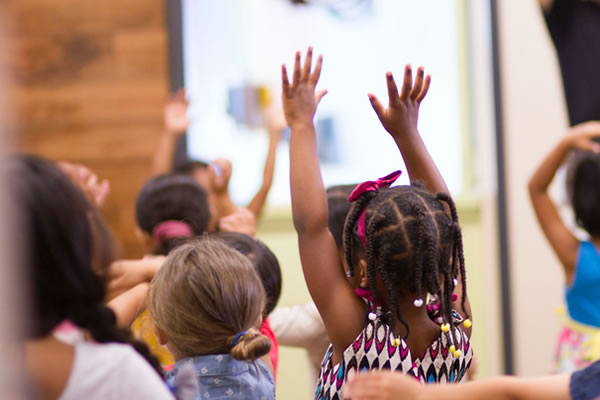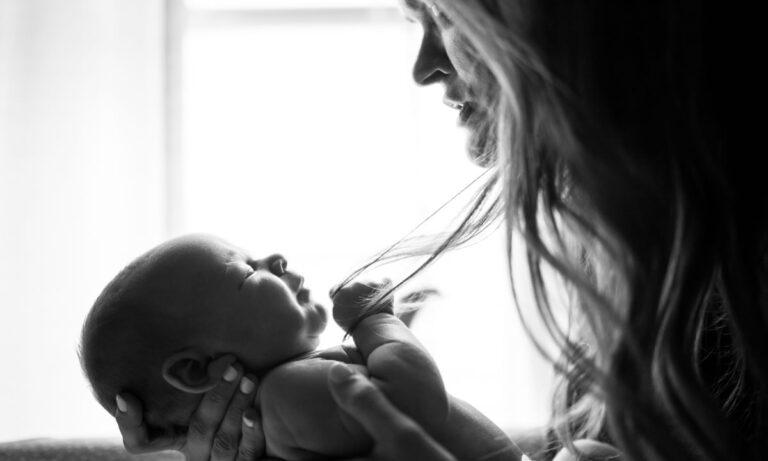In one of my workshops, a mother summed up her childhood experience of sharing by saying: “Every time I got candy, I had to share it with my sister. Mom said it was nice to share, but I was sure it was bad because I was always left with half the candy.” Whether sharing food, toys, or the use of the slide, the result of adult-directed sharing often leaves a child with a sense of loss or a diminished experience — and not with joy. Children’s authentic generosity shows up in areas that we often don’t notice or don’t approve of. They assume that guests can stay forever and don’t see why they should leave and they see food in every home as their own. They share clothes and beds easily; they love giving gifts, hugs, and love.
Children are generous, and they also like to keep certain personal things and experiences to themselves, just like adults. Therefore, I use the word “sharing” to describe what adults wish that children would share.
There are children, like your neighbor, who seem happy to share toys or food with another child. This can shake your confidence in yourself as a parent. However,…
you did nothing wrong. With rare exceptions, children who share everything “happily” are doing so to please their parents and live up to expectations. The mother who recalled hating to share never told her parents how she felt. When sharing her candy, she was feeling intimidated, and not generous, while the adults around her saw her as loving to share.
We Don’t Share, So Why Should They?
It does not take long for children to discover the cultural code “I am what I have” and “No one should take what is mine.” This lesson is spelled out everywhere: the clothes we wear, the cars we drive, the homes we dwell in, and the financial intent behind so many of our actions. When someone touches our car, it honks. The police come if someone tries to take our money or take anything from our home. We sign fat piles of papers to prove this house is mine, not yours, and we are devoted to protecting our possessions.
We live in a society in which we are defined by what we own and we don’t often share it or we share it only within our own family and community and based on our personal choices. Owning gives us power; it is up to us who to give to. Likewise, children want to choose freely what, when, and with whom to share, based on their evolving sense of identity as related to owning. You would do better to respect your child’s preference to share or to keep things to herself. The ability to give up something for the sake of somebody else is not yet developed in a child, and it won’t develop by being coerced into it.
Keep in mind that the child is learning from our ways, not from what we say. Therefore, “share with your cousin” teaches two things:
1. Tell others what to do regardless of what they feel and need. (You are telling your child.)
2. Ignore your own preferences and follow instructions.
How to Respond
These qualities are not what you wish for her to learn if you want her to be confident and authentic. Causing a child to do things she is not ready to do of her own volition does not get her there sooner. On the contrary, she might cling and yearn for what she missed for much longer while being confused and inauthentic. Therefore, when a child has a need to own and keep things to herself, it is best to trust that this stage is vital for her growth. Instead of pushing your child ahead of her readiness, protect her dignity. Your generous trust and support of her choices will provide her with the ground on which the joy of sharing grows.
Before friends come to play, ask and listen to your child’s needs regarding her toys and help her put away toys she would rather not share. She may want to share some things on her terms; discuss with her how this would work. You can also make a generous offer:” Would you like me to buy another box of legos for use with guests?” When friends arrive, respect your child’s choices. To the question, “How come Lily doesn’t share her bike?” you can respond with, “It must be very important to her. I can see how much you like it, yet we are going to respect her choice.” Provide empathy and information about available toys, while trusting the visiting child to resolve her own dilemma. If she is expected to share in her own home, your words could validate her unexpressed need to protect her possessions.
As for food, it is easiest to offer generous quantities that allow everyone unlimited amounts. However, when given the treat to share with a few, children often divide things fairly. What’s unfair is to give one child a candy and then expect him to give part of it up. If a child receives a treat at a party that her sibling did not attend, she needs not to share it unless she chooses to do so of her own free will. You can offer something else to her sibling or, in the absence of a treat, give empathy. There is no need to save children from experiencing living with others, only to respond with compassion.
No Ownership
It is possible to raise children with reduced emotional charge in regard to ownership. Buy fewer things and declare that things belong to the family rather than to an individual. Ask family and friends to express their love with quality time, rather than material goods, and do the same yourself. In addition, avoid using “it’s mine” or “it’s his” as a reason why the child cannot have it. Instead, focus on the nature of the item: “It can break,” “It isn’t safe,” etc.
Notice how you teach not to share and change it in you. Your child will then have a teacher of generosity.
©Copyright Naomi Aldort










